In recent years, as small-scale livestock farming has declined sharply, the source of manure - which is a "traditional organic fertilizer" - has gradually become depleted. In many rural areas, the image of people burning straw after harvest has become familiar, causing smoke and dust and great waste. Most farmers only use NPK fertilizer, while the lack of organic matter has made the soil increasingly infertile.
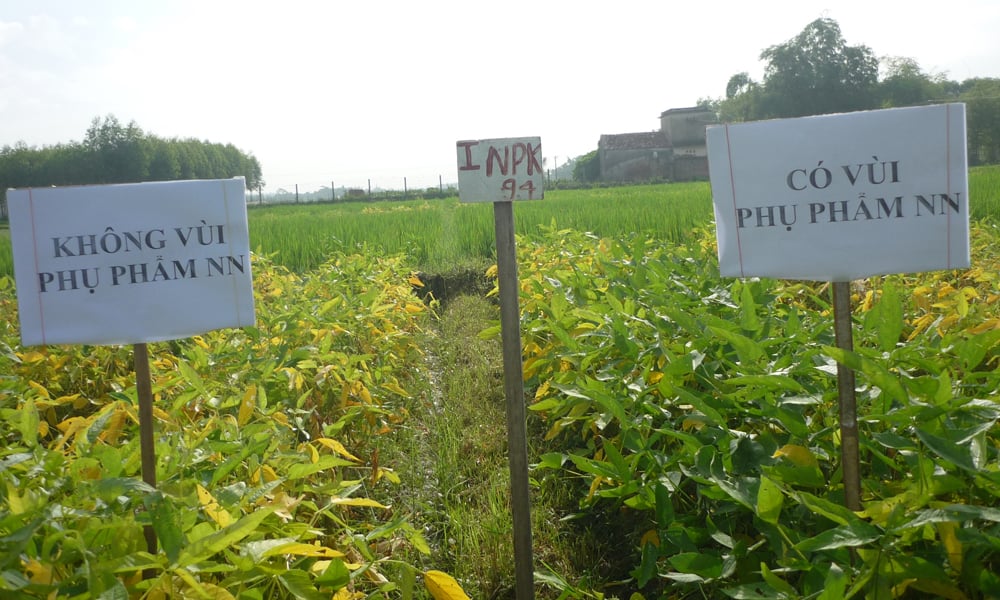 |
Building a control sample for growing soybean in the experiment at the Center for Soil and Fertilizer Research in the Midlands. |
Since 1998, the Center for Soil and Fertilizer Research in the Midlands (Institute of Soil and Agrochemistry) has carried out the experiment "Long-term effects of manure, agricultural by-products and mineral fertilizers on crop yield on gray, infertile soil". The results after nearly three decades show that burying by-products from previous crop crops such as straw, corn stalks, soybeans, etc. has brought about outstanding results in both productivity and soil quality.
The latest figures for 2024-2025 show that spring rice yields increased by 13.5-16.4%, and summer-autumn rice yields increased by 17.8-19.3% compared to fields fertilized with only mineral fertilizers. Spring soybeans increased by 20.8%, summer soybeans increased by 23.6%, and winter corn increased by more than 20%.
Not only does it improve productivity, reusing by-products also helps farmers increase profits significantly. According to the research team, the effect of burying by-products is most evident after several years of continuous application. The previously poor organic gray soil now has a humus content increased by 15-20%, the ability to retain moisture and nutrients is better; the pH is more balanced, limiting the acidification phenomenon caused by the overuse of chemical fertilizers. This proves that combining mineral fertilizers with local organic sources helps restore soil microflora, nurturing long-term fertility - a core factor for sustainable agriculture.
In the context that the whole province currently has thousands of hectares of gray, infertile land, the solution of utilizing agricultural by-products is not only of economic significance, but also a "green" direction for agricultural production. Instead of burning hundreds of thousands of tons of straw each year, reusing them will help add tens of thousands of tons of organic matter to the soil, reduce greenhouse gas emissions and improve the rural environment.
To promote effectiveness, localities need to step up propaganda and technical training for farmers on how to handle and compost agricultural by-products. Along with that, build model models that apply synchronously between by-products and mineral fertilizers, helping to spread experience and replicate effectiveness in mass production.
Source: https://baobacninhtv.vn/phu-pham-nong-nghiep-nguon-vang-cai-tao-dat-xam-bac-mau-postid431207.bbg


![[Photo] General Secretary To Lam and National Assembly Chairman Tran Thanh Man attend the 80th Anniversary of the Traditional Day of the Vietnamese Inspection Sector](https://vphoto.vietnam.vn/thumb/1200x675/vietnam/resource/IMAGE/2025/11/17/1763356362984_a2-bnd-7940-3561-jpg.webp)







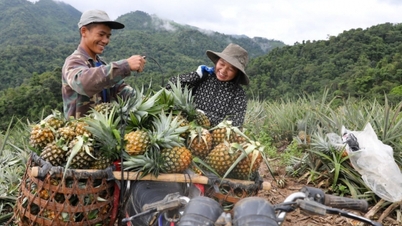





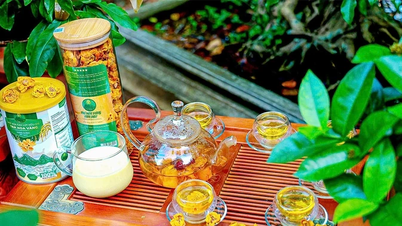

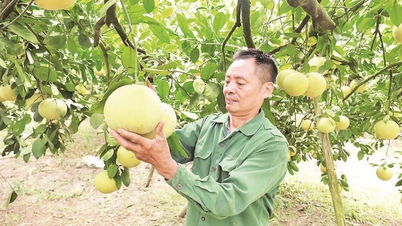

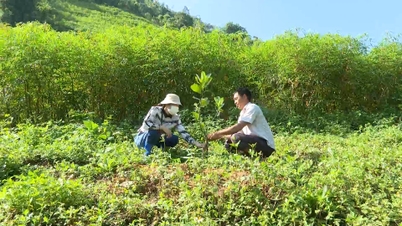















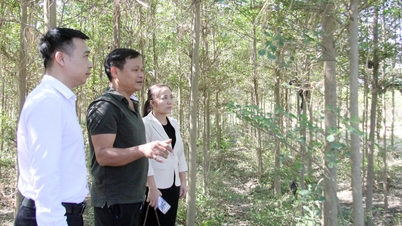
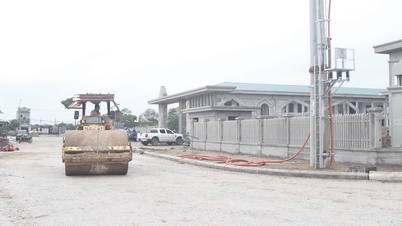
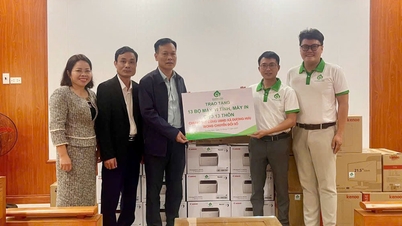



























































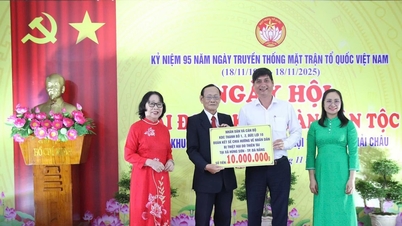















Comment (0)